MercoPress. South Atlantic News Agency
Tag: Loligo squid season
-
Friday, September 19th 2025 - 20:10 UTC
Falklands, Loligo Season closes a week earlier to conserve stock levels

The Falkland Islands Government Fisheries Department has issued a closure notice for the second Loligo season, which will end at 23:59 today, Friday, 19 September.
-
Thursday, August 7th 2025 - 12:14 UTC
Falklands, Loligo season
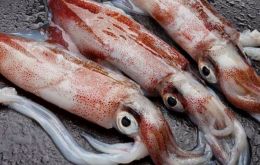
The Falkland Islands Government’s (FIG) Fisheries Department yesterday issued a 48-hour notice of closure for the winter loligo fishery season.
-
Sunday, July 20th 2025 - 07:23 UTC
Galician Fleet Sets Sail for Falklands with Cautious Optimism Amid Loligo Squid Uncertainty
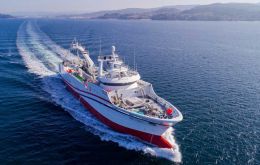
Despite sharp declines in recent seasons and unanswered questions about stock migration, nearly 1,000 crew members embark on a crucial four-month campaign vital to the region's economy.
-
Saturday, May 3rd 2025 - 08:46 UTC
Falklands’ first Loligo season, despite earlier closure, was ‘relatively good’ FIFCA and Spanish associates agree

The Falkland Islands Fishing Companies Association (FIFCA) and its Spanish associates said that following the early closure of the first Loligo season, (March first/27 April) given the scientific reports, and with total catches close to 38,000 tons, it was a relatively good season.
-
Tuesday, April 29th 2025 - 07:43 UTC
Falklands, the size and maturity of Loligo squid forces closure of fishing season
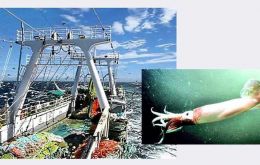
The Falkland Islands Government Fisheries Department has confirmed that the Loligo fishing season has closed. The season closed on Sunday 27 April. Following issues with the second season in the last two years, the first season was closely monitored, particularly with regards to size and maturity of squid being caught.
-
Thursday, February 27th 2025 - 18:20 UTC
Falklands: Loligo fishing season to open on 1 March

Following discussions with the fishing industry, the Falkland Islands Government Fisheries Department has confirmed that the Loligo fishing season will begin on 1 March.
-
Monday, August 19th 2024 - 07:12 UTC
Falklands cancels second season of Loligo squid for conservation reasons
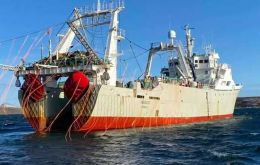
In July 2024 the Falkland Islands Fisheries Department conducted a routine pre-season survey prior to the second Loligo season, working in close partnership with local fishing companies. The survey results showed the lowest second pre-season biomass estimate since 2008, with the lower end of the estimate being below the Fisheries Department safe stock replenishment threshold of 10,000 tonnes.
-
Thursday, August 31st 2023 - 13:38 UTC
Consistent decline of biomass forces Falklands early closure of Loligo season
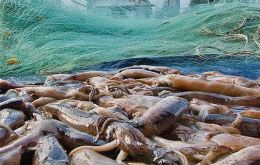
The Falkland Islands Fisheries Department (FIFD) conducted a pre-season survey for the winter Loligo ‘X’ licence season, working in close partnership with local companies. The survey results showed the lowest winter pre-season survey biomass estimates since 2008, a total of 19,859 tons.
-
Friday, June 16th 2023 - 10:14 UTC
Falklands: Record Loligo catch, 53,578 tons, fifth year in a row

Falkland Islands Director of Natural Resources Dr. Andrea Clausen reported there was another high catch of Loligo squid during this year’s first season, the fifth year in a row. Dr Andrea Clausen said in her report for the Fisheries Committee, meeting on June, that the total catch of Loligo had been 53,578 tons.
-
Tuesday, June 13th 2023 - 01:53 UTC
Falklands leading fishing companies opened to review by HRAS
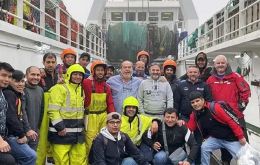
The recent visit to the Falkland Islands by HRAS, (Human Rights at Sea), to conduct an independent review of fishing licensing, related enforcement, and improvements for onboard crew safety and welfare, saw three leading companies opened their doors to scrutiny. This included access to one of the licensed squid fishing vessels and its crew at sea.
